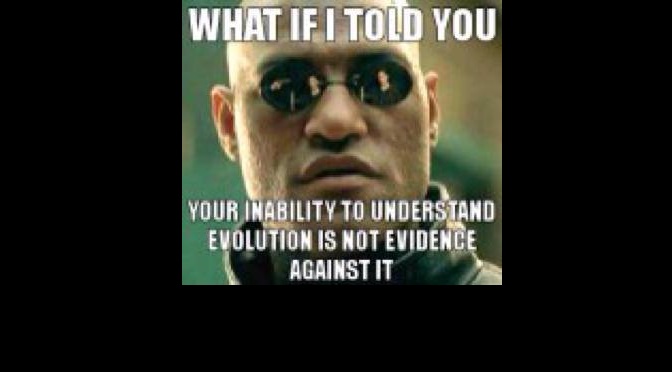Whenever I talk to believers about Atheism, it’s not long before the subject of science comes up. Science, after all, tells us that the miracles of the bible could not have happened, or at least that we shouldn’t look for supernatural causes for them.
That’s when the believer will often say “But surely you must concede that there are some things that science can’t explain.”
Yes. It has always been that way, and probably always will be. Just because we don’t know the answer to some problem, doesn’t mean you can insert some supernatural being into the argument as the answer. Even if you did insert your god into the equation, how could anybody test that it was a god, or that it was your god?
However, humans have been doing just that for millennia, there’s never been a shortage. It’s either God, or Zeus, or Ra, or Varuna, or whoever. Robert G. Ingersoll said “Few nations have been so poor as to have but one god. Gods were made so easily, and the raw material cost so little, that generally the god market was fairly glutted and heaven crammed with these phantoms.”
Carl Sagan called this human tendency to attribute to God that which we do not know as putting “God in the gaps”. However, scientists and atheists are quite content to say that they simply don’t know, and rely on the scientific method to eventually find the answers. Indeed, how else can they be found?
Then the believer might say “How can you trust Science since it’s always changing what it says?”
That is simply the way science works. However, as the answers change, we are getting closer and closer to the truth. Scientists conduct tests on nature and gather results. Then they re-test the results with updated knowledge and techniques that improve over time. Sometimes they do get it wrong, but when that happens they’re the first to admit it, then they continue with their investigations.
Conversely, are you saying we shouldn’t change our understanding of nature as new evidence or new equipment provides better answers?
Peter Boghossian writes “Science has a built-in corrective mechanism that faith does not have. There’s been convergence across all fields of science since the eighteenth century. At any point in the future, do you ever think there will be convergence on specific faith propositions? I don’t, because those propositions are arbitrary”
What is the built-in corrective mechanism that science has? Simple, other scientists. There is no better way for an up-and-coming scientist to make a name for himself than to overturn some long-held theory based on new and substantially improved evidence. Indeed, the more entrenched the idea is that is overturned, the more the rewards from the scientific community. Compare that to religion. What happens to a religious person when he denies or disproves the long-held teachings of the church? Expulsion, ex-communication, shunning and disgrace.
The Scientific Method, which is responsible for modern medicine, space flight, and just about every modern convenience you take for granted today, would come to a grinding halt if scientists today started saying, “Oh, God did it”; and stopped searching for further answers. This actually was the thought process dominant for 1000 years of scientific stagnation and religious oppression during the Dark and Middle Ages.
The Church itself follows scientific findings, but with about a 50 to 500 year lag! In the meantime, they persecuted the scientific community as heretics.
As far as changing goes, don’t forget that the Church changes too. Not too long ago, the Catholic Church did away with “Limbo”, which it created hundreds of years ago to explain where babies went when they died. Now, all of a sudden, mothers are left with wondering where there baby’s souls have been all this time.
This doctrinal change was not prompted by new evidence, and better research, but by fiat. By the church just deciding that it was simply counter-productive to their goals. There never was any evidence for Limbo, any more than there is evidence for Heaven, or Hell, or souls for that matter. Religions have also changed their minds on moral issues like slavery, stoning unruly children and burning witches.
Reason, logic and science are the best illumination we have for shining into the dark corners of our ignorance. Sure, science may get it wrong sometimes but they’re generally able to back up their observations with cold, hard facts. Researchers may sometimes have a flawed understanding of those facts, which may lead them in the wrong direction, but that’s why scientific enquiry never stops. Further, other fields of scientific research may either corroborate or contradict scientific findings; which helps keep Science on the straight and narrow.
You want proof of this? How about the eradication of small pox, decoding of the human genome, the Hubble telescope, moon-landings, GPS systems, computers and the internet that you’re using right now.
At this time I’d like to open up the comments for those who wish to list the discoveries that religion has brought humanity. Anybody? (Oh, and Intelligent Design is not a discovery, it’s just a claim that things are too complicated to come about by nature; and it’s a claim that has never been demonstrated to be true.)

